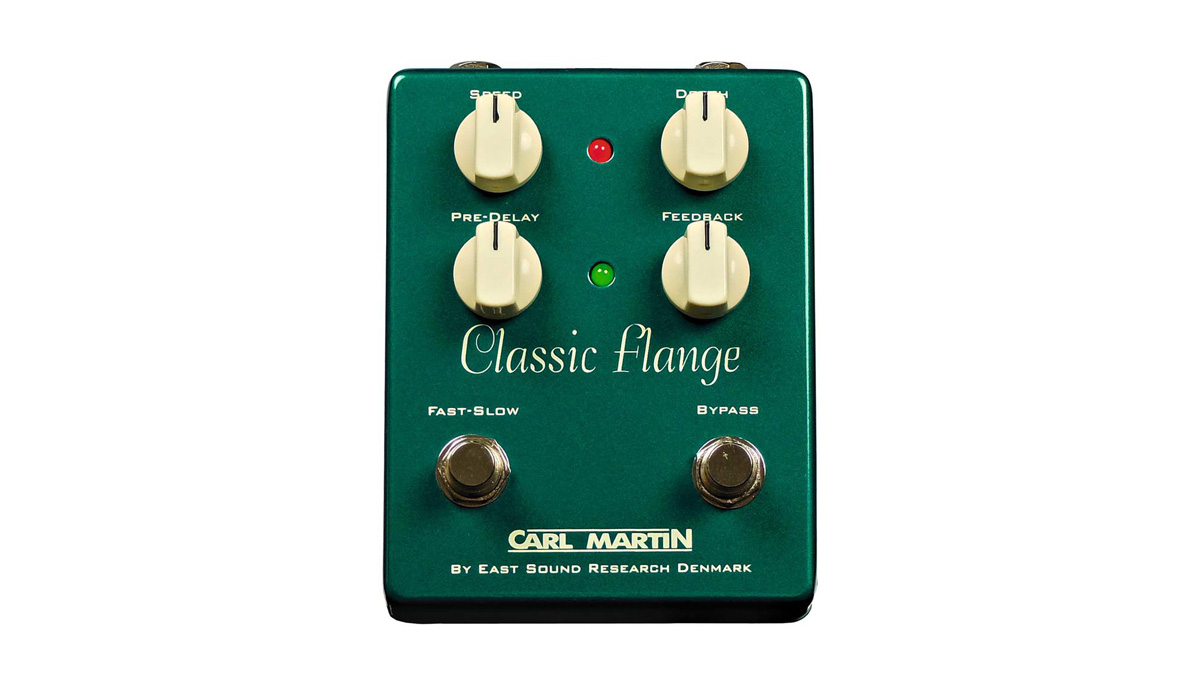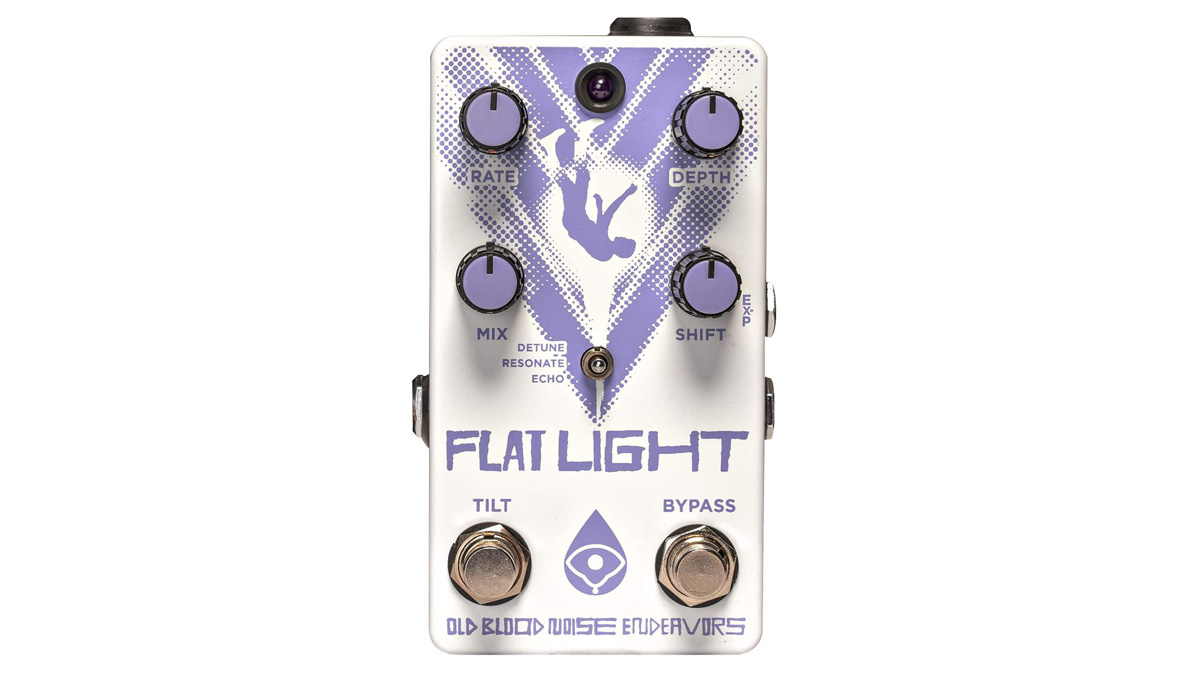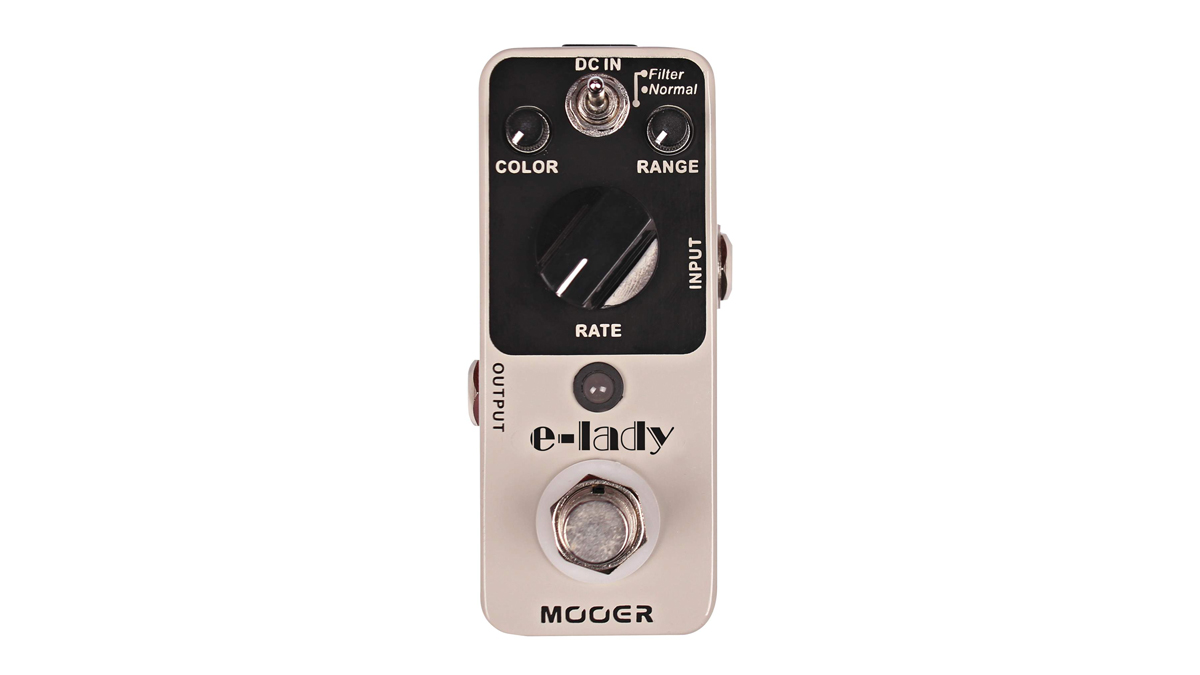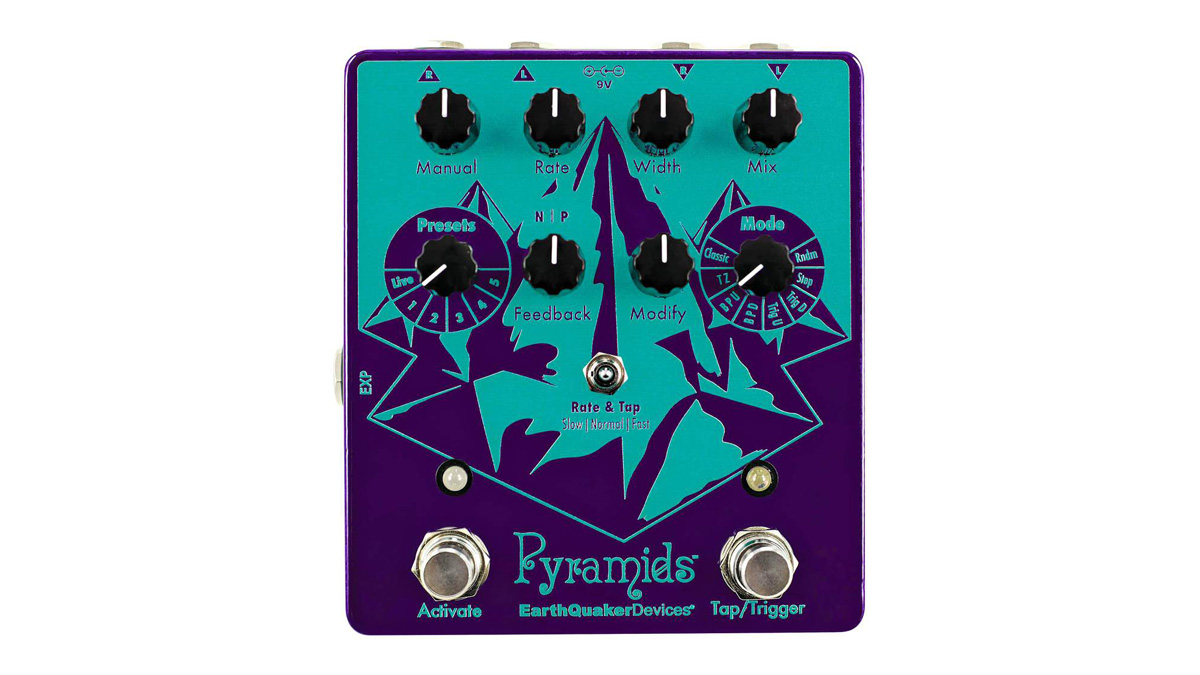Guitar review round-up: Flanger pedals
Four of the best flanger pedals duke it out

Though some people mix up flange with other types of modulation, it’s a very specific effect that was originally created by placing a finger on a running tape machine to slow down the playback of the recording slightly, and mixing that with a dry source of the same sound - you can hear it on many classic psychedelic recordings.
Obviously this wasn’t the most practical thing to do in every situation, not least because lugging two tape machines around wasn’t possible, so as soon as compact delays became a reality, flanging was not far behind, using delay lines to warp the guitar signal. There’s more than one way to get your flange fix though, so we’ve gathered together some recent favourites, from vintage vibes to modern madness...

Carl Martin Classic Flange
While this may look like the least interesting pedal of the bunch, don’t let looks fool you.
In addition to a second footswitch that allows you to jump between a slow and a fast rate setting, there’s also a pre-delay and feedback knob, which make this into a surprisingly versatile pedal. We found the difference between vintage flange for those Police-style arpeggios, and oscillating noise was simply a twist of the feedback control in most cases.
Experimental possibilities aside, it’s definitely aimed more at a classic rock crowd, and that’s where it excels. A no-nonsense, vintage flange sound.
3.5 out of 5

OBNE Flat Light
Any Old Blood Noise Endeavours pedal is unlikely to be boring, and the Flat Light proves that OBNE is incapable of making a dull pedal.
Sure, if you’re after a basic vintage flanger then this might not be for you, but if you feel like you’ve heard it all then this might be just the ticket. We had the most fun in the detune and echo modes, with radical pitch-shifting and echo-flange combinations proving fruitful for spaced-out lead playing.
However, it must be said that the Flat Light is quite a digital-sounding pedal, and where with a glitch box that’s usually a plus, for a flanger that’s probably a downside.
4 out of 5

Mooer E-Lady
There’s no prizes for guessing which iconic flanger this micro offering from Mooer takes its inspiration from.
The question is, if you’ll pardon the size-based pun, does it measure up? Well, it certainly can’t compete in the mojo stakes, but in terms of sound it’s up there. Like another simple but effective vintage beast, the EHX Small Stone, the E-Lady does its one thing very well indeed; there’s a toggleable filter setting, but we found ourselves sticking to the normal mode and enjoying playing some Porcupine Tree and Opeth-style arpeggiated open chords with the rate down and range up.
4.5 out of 5

Earthquaker Pyramids
With more knobs and controls than you can shake a stick at, the Pyramids is about as flexible a flanger as you could possibly want, and then some.
If you can get over the bewildering array of options, there’s some great sounds in here, especially when the pedal is run in stereo as intended by EQD. The stock flanger is decent, if a little clinical, but the really fun sounds in this pedal are definitely the most out-there. There’s a step flange setting, which is brilliant, and then there’s a random version, which if set to a rapid rate sounds a bit like a random step sequencer.
4 out of 5
Total Guitar is Europe's best-selling guitar magazine.
Every month we feature interviews with the biggest names and hottest new acts in guitar land, plus Guest Lessons from the stars.
Finally, our Rocked & Rated section is the place to go for reviews, round-ups and help setting up your guitars and gear.
Subscribe: http://bit.ly/totalguitar
